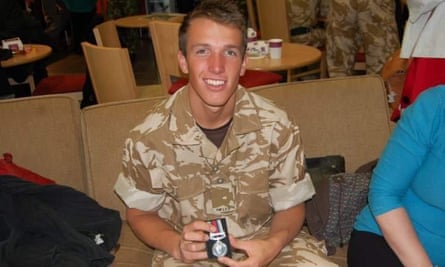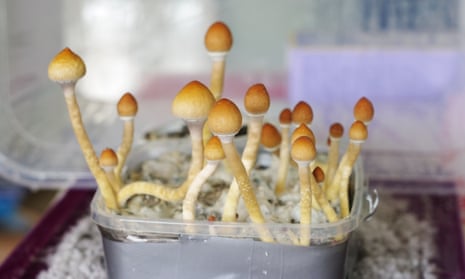A growing number of soldiers suffering from post-traumatic stress disorder are turning to “magic mushrooms” and LSD to treat their condition. But drug laws make it almost impossible to establish whether they work.
Now a new body, the Medical Psychedelics Working Group, a consortium of experts, academics, researchers, policy specialists and industry partners, is to begin lobbying for a change in the law so that scientists can conduct clinical trials.
“This is something that’s been developed by veterans,” said Professor David Nutt from Drug Science, an independent scientific body which calls for an evidence-based approach to the legislation and is part of the group.
“Three years ago if I was asked the question would psilocybin [the psychedelic compound in magic mushrooms] work for veterans, I would have said it would be quite dangerous to relive the trauma when tripping. But so many vets are doing it now that I’m convinced it can work.”
It is estimated that 17% of people who have seen active military service report symptoms such as flashbacks, nightmares, anxiety, depression, grief and anger.
Earlier this year a team at the Medical University of South Carolina reported on clinical trials which found that PTSD sufferers who used magic mushrooms as part of their therapy showed greater levels of improvement compared with patients who did not receive the drug.
But such clinical trials are difficult in the UK because LSD and magic mushrooms, which were legal until 2005, are classed as Schedule 1 drugs.
The classification means it costs around £3,500 for a licence from the Home Office to conduct tests using the drugs, and the application process can take a year. Scientists face prison sentences if the drugs fall into the wrong hands.

“But when ex-servicemen and women in the UK are reporting how their own use of psychedelics is having a marked effect on PTSD symptoms, we need to restart our studies,” Nutt said. “It could be that these substances can improve the lives of countless people who are suffering with debilitating and life-diminishing mental health conditions.”
Guy Murray, an infantryman with the 4th Battalion The Rifles, served on a long tour of Helmand Province, Afghanistan where his best friend and many other colleagues were killed by the Taliban. He was diagnosed with PTSD in 2017, after suffering from suicidal thoughts, anxiety and severe depression for several years.
After watching a Ted Talk about psilocybin and depression, he began experimenting with magic mushrooms, and then, under specialist supervision, was given LSD.
“It allowed me to address things which I was not open to addressing and it has honestly changed my life,” Murray said. “I believe I left my PTSD behind in those sessions. I am no longer destructive or closed off. I have my life back.”
Crispin Blunt, Conservative MP for Reigate, who served with the 13th/18th Royal Hussars, said that Murray’s experiences were common among the armed forces.
“About a third of veterans with PTSD from recent conflicts, estimated by some to be 2,400 individuals, have the condition so seriously as to be beyond recovery from current treatment practice,” Blunt said.
“We need to provide a safe, professional and lawful route of access to novel treatments such as psilocybin, collecting evidence and calling for our drug laws to be evidence based so our servicemen and women are not forced to travel to other countries, go underground or break the law to obtain treatment that works.”
